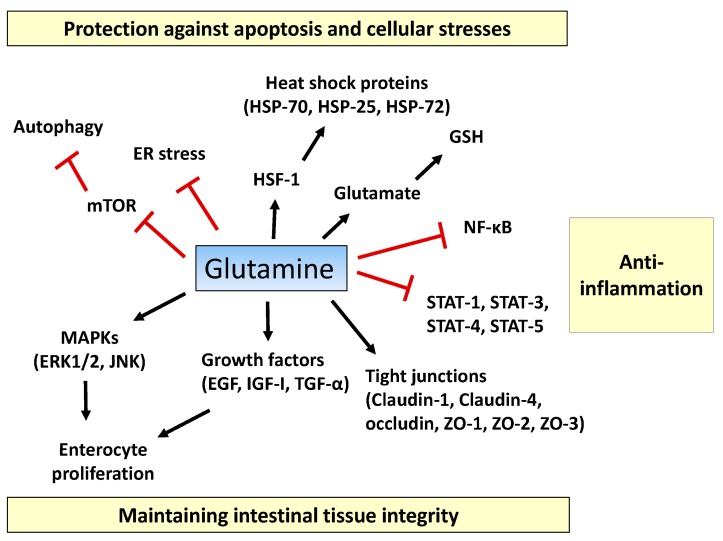Figure 1.
Proposed action mechanisms of glutamine in intestinal cells. Glutamine maintains intestinal tissue integrity via promoting enterocyte proliferation, activation of mitogen-activated protein kinases (MAPKs) (ERK1/2, JNK1/2), optimizing the actions of growth factors (epidermal growth factor (EGF), insulin-like growth factor (IGF)-I, transforming growth factor (TGF)-α), and inducing expression of tight-junction proteins (claudin-1, claudin-4, occludin, zonula occludens (ZO)-1, ZO-2, and ZO-3). Pro-inflammatory signaling pathways such as the nuclear factor-κB (NF-κB) and signal transducers and activators of transcription (STAT) pathways are inhibited by glutamine. Glutamine suppresses extensive apoptosis by participating in the synthesis of glutathione (GSH) and by regulating heat shock factor (HSF)-1-mediated expression of heat shock proteins (HSPs). Glutamine ameliorates endoplasmic reticulum (ER) stress and promotes autophagy by inhibiting the mechanistic target of rapamycin (mTOR) pathway, thus protecting intestinal cells from stressful conditions. T bars mean inhibition while arrows represent stimulation.

